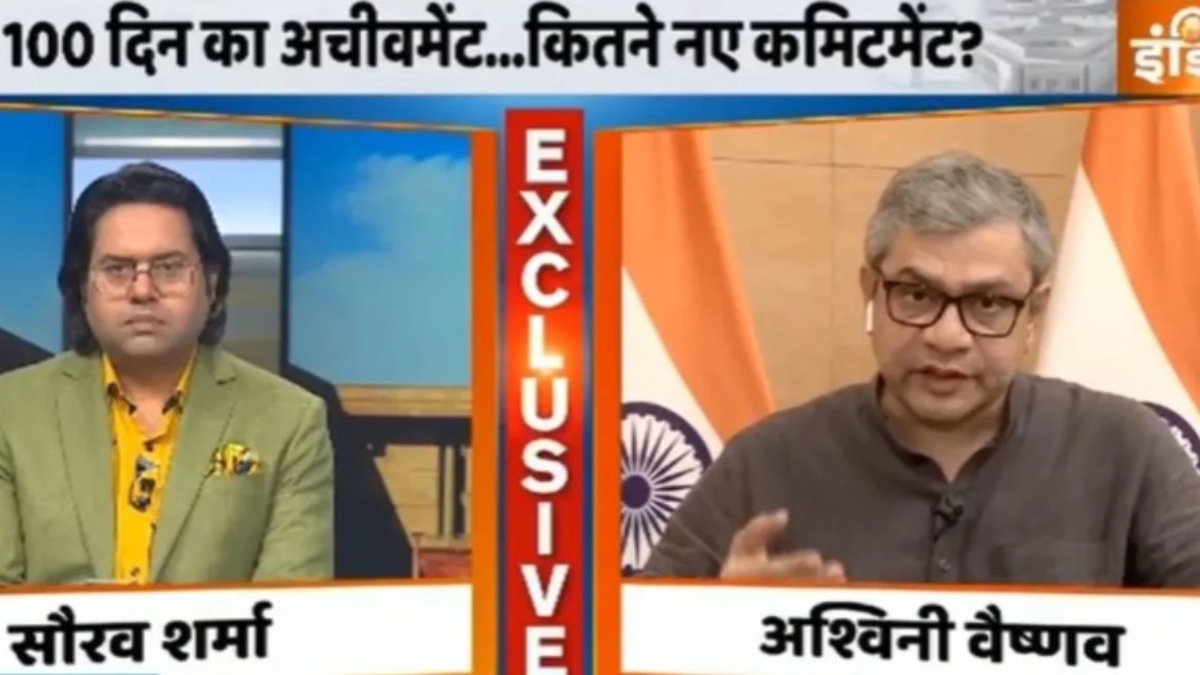 |
|
In a special interview with IndiaTV, Union Railway Minister Ashwini Vaishnaw presented a comprehensive account of the Modi 3.0 government's accomplishments within its first 100 days. The interview highlighted significant progress in infrastructure development, particularly in the railway and metro sectors, along with substantial investments in the semiconductor industry to bolster India's economic growth and job creation.
Vaishnaw emphasized the rapid expansion of the metro network, now spanning 18 cities across India. Recent additions in Pune, Thane, and Bangalore demonstrate the government's commitment to improving urban mobility and connectivity. The inauguration of a new rapid train service by Prime Minister Modi, aiming to provide affordable travel between major cities, is expected to revolutionize connectivity between nearby cities. The Minister stressed the multifaceted benefits of such infrastructure projects, encompassing not only improved connectivity but also the generation of numerous job opportunities in design, labor, and architecture.
Addressing concerns regarding railway safety, Vaishnaw highlighted the government's decisive approach to tackling derailment attempts. He detailed extensive measures undertaken by the Railways in the past 100 days, including 97,600 inspections, verification of 90,000 signaling plants, and renewal of 2,500 kilometers of railway tracks. These efforts underscore the government's commitment to ensuring the safety and reliability of the railway system.
Beyond infrastructure, Vaishnaw delved into the government's strategies for fostering job creation and economic growth. He emphasized the role of new jobs emerging across various sectors, including mobile, electronics, and device manufacturing. He highlighted the government's commitment to establishing India as a leading semiconductor hub, a goal that has been in progress since 1962. Approval for five semiconductor units, with three already operational, signifies the government's dedication to building a robust domestic semiconductor industry. Vaishnaw expressed confidence that India will emerge as a top-five player in the semiconductor industry within the next decade, driven by its talented workforce and the favorable global environment.
The Minister also reported significant investments in the semiconductor sector, with approximately ₹1.5 lakh crore secured. He pointed to the commencement of Google Pixel manufacturing in Tamil Nadu and the upcoming launch of laptop manufacturing as further indicators of India's growing prowess in the technology sector.
Responding to criticisms from the Congress party, Vaishnaw defended the government's record and highlighted its responsiveness to public feedback. He criticized Congress for its past policies, such as the UPSC lateral entry policy, implemented by them and later restricted. He asserted that the Modi government is dynamic and responsive to public needs, unlike Congress, which he accused of merely making noise after failing to deliver in previous terms.
Vaishnaw concluded by emphasizing the historical significance of Narendra Modi's third term, highlighting that it is the first time in 60 years that a leader has been re-elected for a third term by the public. This achievement reflects the public's confidence in Modi's leadership and the government's commitment to driving progress and development in India.
